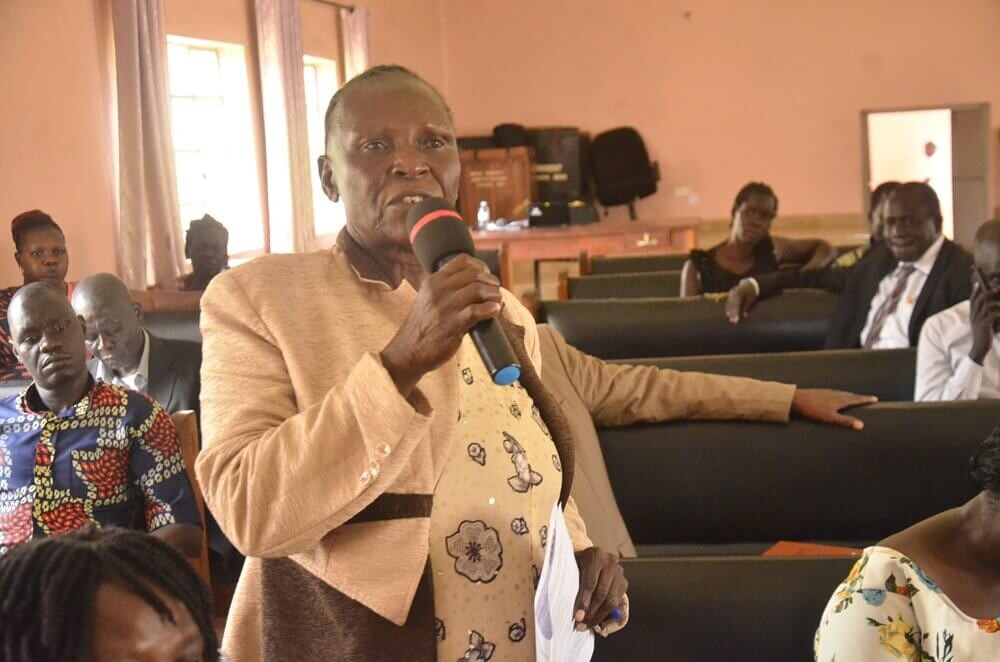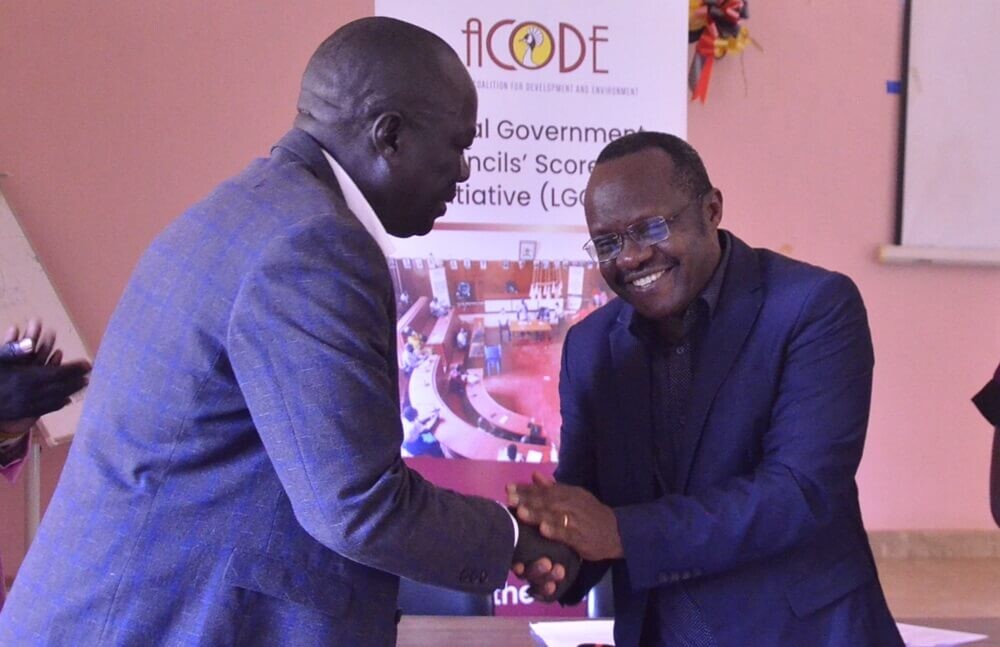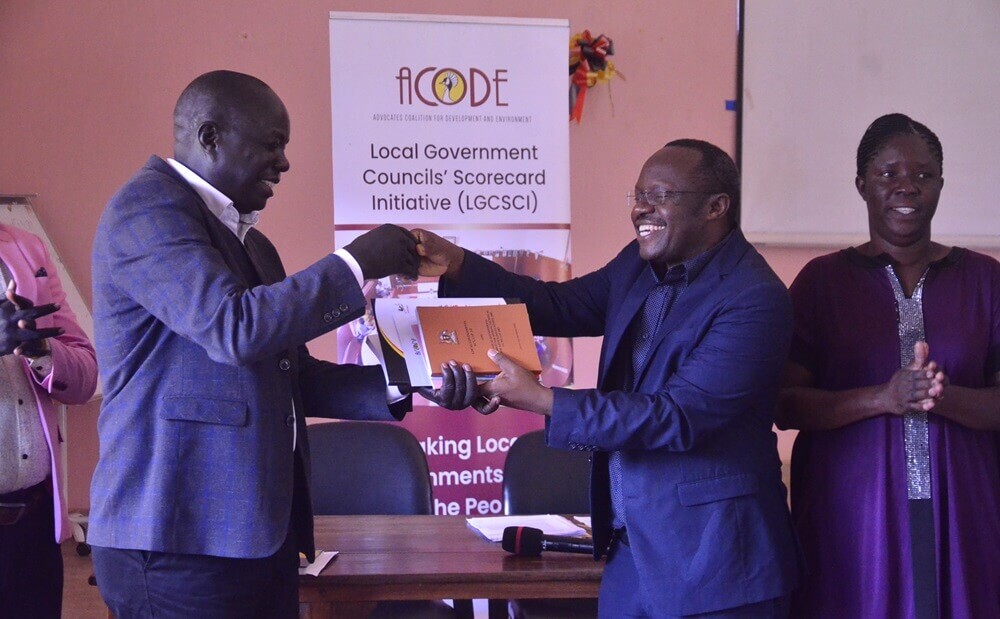Gulu, (UG): The Uganda policy think tank, the Advocates Coalition for Development and Environment (ACODE), has retooled the local government leaders of the Gulu district with manuals that will guide them on how to conduct council business.
The capacity building which took place at Gulu District Council hall for two days, ended today (Friday, November 17th).
Dr Arthur Bainomugisha, the executive director of ACODE, while sensitising the participants on the legal framework for decentralisation, noted that they have found that most of the councillors and statutory board members lack knowledge of their roles and responsibilities, which has led to conflicts that have affected service deliveries.
“Africa has all it needs to develop. What we need now is good leadership. We need leaders who are transformative, not transactional. Most of the leaders we have now are transactional leaders. They look at how to win the next election, amass much money, and you find there are no drugs in the hospitals, yet they are building mansions,” Dr Bainomugisha emphasised.
The biggest challenges the policy think tank has found across the 35 district local government councils they are working with, according to Dr Bainomugisha, include poor documentation, a low level of education among councillors, which deters them from making comprehensive reports, a shallow level of debating, poor contact with the electorate, and the fact that many do not know their roles and responsibilities.
Mrs. Aciro Lucy Anywar, a member of the Gulu District Land Board, welcomed the programme, urging it to be timely. She noted that this training will build the capacity of councillors to improve the quality of council deliberation, which they have been wanting.
She advises that the councillors across Northern Uganda should consider enrolling in further studies at Gulu University to prepare them for sustainable leadership.

Mr Sadat Mulocho, the Research Officer, Ministry of Local Government, argued a lack of knowledge among the councillors is costing the government in areas of litigation and compromised service deliveries.
“We are aware of the negative impact caused by no induction or delayed induction; for example, it leads to serious litigation costs to the government as a result of making unlawful decisions and also intra- and interpersonal conflicts as a result of failure to appreciate the roles and responsibilities of various leaders, thus leading to the formation of very many power centres that jeopardise service deliveries,” Mulocho asserted.
In a bid to change the narrative, Mr. Walter Akena, the Research Officer at ACODE, stated that ACODE is donating manuals worth 160 million shillings courtesy of Danish Embassy support for the 35 districts to equip the leaders to work within the legal framework.
Mr. Opiyo Christopher Ateker, Gulu district LC5 Chairperson, applauded ACODE for the opportunity, arguing that it conforms to the need to accelerate its effort to achieve National Development Plan III Vision 2030 and the Sustainable Development Goals.
Mr Opiyo, once voted as the best councillor in Uganda, urged his colleagues to take the induction training seriously and acquire ably skills and knowledge to enable them to fulfil their roles and responsibilities and appreciate the roles of various leaders instead of capitalizing on the conflict that affects the much-needed cohesion to ensure effective service delivery to the electorates.

However, Dr Bainomugisha suggested that the Government needs to downsize the number of districts to have a manageable size in terms of administration costs. He argues that huge funds that should be channelled to boost service deliveries in other sectors like health, and education, among others, are being sunk into administration.
The policy of decentralization was adopted in 1992. The policy triggered social economic development through the creation of many district and administration units due to people’s demand.
The creation of many districts from originally 36 to 135, according to Dr. Bainomugisha, is affecting the Uganda government to have lean affordable administration units thus affecting the Ministry of Local Government to provide support to the local government council leaders to champion service deliveries to the grassroots.
Do you have a story or an opinion to share? Email us on: dailyexpressug@gmail.com Or follow the Daily Express on X Platform or WhatsApp for the latest updates.

